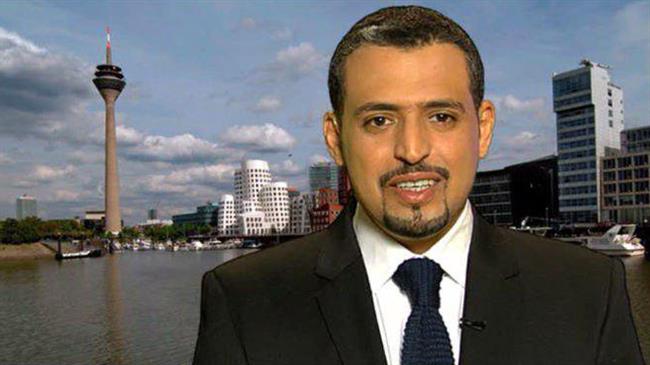Germany extends ban on Saudi arms sale by 6 months despite France, UK criticism
Germany has extended its ban on all arms exports to Saudi Arabia for a further six months, in a move which drew criticism from fellow European arms exporters, including France and Britain.
The government of Chancellor Angela Merkel imposed a temporary halt on arms sales to Riyadh back in October 2018, citing circumstances surrounding the gruesome murder of dissident Saudi journalist Jamal Khashoggi at the Saudi consulate in Istanbul.
“The ban will be extended for a further six months to September 30,” government spokesman Steffen Seibert said in an emailed statement on Thursday. “Over this period no new export applications will be approved.”
The ban restricts not only deliveries of fully assembled products, but also of components used by weapons companies in other European nations.
This has prompted outrage mostly in France and Britain, which have heavily relied on German high-tech components for producing and assembling fighter jets and warships for Saudi Arabia.
In an attempt to alleviate its partners' concerns, Berlin also agreed to extend for nine months export licenses that had already been granted, provided the companies undertook not to deliver any finished weapon systems until the end of the year.
The German government also called on France and Britain to ensure that its weapons systems deliveries to Saudi Arabia or the United Arab Emirates would not be used in the Yemen conflict.
The two Arab regimes and their regional allies in the Middle East have been leading a deadly military aggression against the people of Yemen since March 2015, using weapons and intelligence supplied by Western countries, most notably the United States, France, Britain and Canada.
Merkel’s government has come under pressure from many conservatives at home to end the ban, who argue that a continued ban could jeopardize projects such as the development of a Franco-German combat jet and other arms deals.
The arms ban, however, has been praised by human rights advocates, who said it had more effect than expected.
Despite international outrage over both the Khashoggi murder and the war in Yemen, however, most countries have decided to maintain profitable arms deals with Riyadh.
Saudis started the Yemen war with the aim of bringing a former government to power and crushing the Houthi Ansarullah movement. Riyadh has failed to fulfill its objectives.
The United States, the world’s main arms supplier, has already made it clear that it would not stop lucrative arms deals with Riyadh, its biggest customer.
US President Donald Trump has even brushed off criticism over the Khashoggi murder and the Saudis’ role in the war on Yemen, defending the kingdom's de facto ruler Crown Prince Mohammad bin Salman, who has been leading the war.
It was recently reported that the Trump administration had even gone further by approving several authorizations that allow American companies to provide Riyadh with nuclear technology or technical assistance.
Trump’s energy secretary does not ‘recall’ nuclear approvals date
A number of lawmakers, who have already accused the Trump administration of complicity in covering up Khashoggi’s murder, raised a question over the date of the approvals.
During a hearing at the Senate Armed Services Committee, Democratic senator Tim Kaine asked Trump’s Energy Secretary Rick Perry if any of his approvals were made before Khashoggi’s murder in Istanbul.
Perry, however, said he cannot “recall” the date he made the approvals.
“We sign a lot of papers.” said Perry. “I’ve got a pretty good memory, but to remember every date that I sign a piece of paper might be above my ability to recall.”
"I don't want to give you a date specific," the energy secretary added.
US approves sale of nuclear power tech to Saudi Arabia amid Congress' concerns regarding a possible arms race in the Middle East, Khashoggi murder https://t.co/9SKACNGOVY
— DAILY SABAH (@DailySabah) March 27, 2019
On Thursday, the US Department of Energy issued a statement clarifying that it had issued seven approvals for American companies to “secretly” provide the kingdom with nuclear technology.
The move has raised concern among both parties, who say providing the technology, without non-proliferation safeguards, could eventually lead to development of nuclear weapons in the kingdom.
Last year, bin Salman said that the kingdom would be quick to develop nuclear weapons if Iran — which Riyadh views as its arch rival in the region — did so.
Iran does not pursue nuclear weapons, and under a 2015 international deal, it has placed its entire nuclear program under enhanced 24/7 monitoring by the UN nuclear agency.
That organization, the International Atomic Energy Agency (IAEA), has repeatedly confirmed the peaceful nature of Iran’s nuclear program.
Hamas thanks Iran, Resistance Front following achievement of ceasefire in Gaza
'Capitulation': Israeli officials and media concede Gaza defeat as truce unfolds
'Gaza has won': Social media users react to ceasefire with mix of relief, joy
Iran seeks South Korea’s assistance for AI, fiber-optic projects
VIDEO | Iran's 'Eqtedar' (Power) maneuver
Israel hits HTS military target in Syria for 1st time since fall of Assad
VIDEO | Press TV's news headlines
Israel has slaughtered 13,000 students in Gaza, West Bank
















 This makes it easy to access the Press TV website
This makes it easy to access the Press TV website